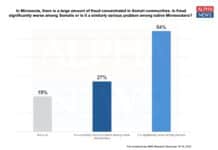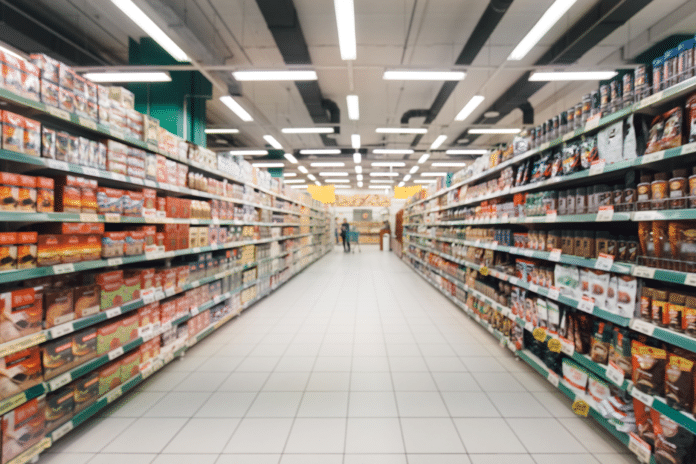(The Center Square) — Gas prices and inflation hit yet another high this week, raising more concerns about the impact on regular Americans and the future of the U.S. economy.
The Bureau of Labor Statistics Thursday reported that the Consumer Price index, a major marker of inflation, rose 7.9% in the previous 12 months.
“The 12-month increase has been steadily rising and is now the largest since the period ending January 1982,” BLS said. “The all items less food and energy index rose 6.4 percent, the largest 12-month change since the period ending August 1982. The energy index rose 25.6 percent over the last year, and the food index increased 7.9 percent, the largest 12-month increase since the period ending July 1981.”
Rising food prices were a major source of the overall increase and a serious pain point for many Americans.
“The food at home index rose 8.6 percent over the last 12 months, the largest 12-month increase since the period ending April 1981,” BLS said. “The index for meats, poultry, fish, and eggs increased 13.0 percent over the last year as the index for beef rose 16.2 percent.”
According to AAA, gas prices have risen to a new high with a national average of $4.32 per gallon, up from $2.82 the same time last year.
Experts point out that those gas price increases have contributed to making all goods more expensive.
“Thanks to the Biden administration’s policies, inflation is a growing tax hurting all Americans,” said Joel Griffith, an economic expert at the Heritage Foundation. “A married couple with $6,000 of monthly expenses — such as groceries, gas, housing, clothing, and other household needs — is now overwhelmed, with $480 in increased monthly costs dwarfing average wage gains. For a typical family, the inflation tax means a loss in real income of more than $1,900 per year.”
Griffith argues the problem will only grow worse as the Biden administration increases spending and holds back domestic energy production.
“Now is the time for the Federal Reserve to stop its rampant printing of money and for the federal government to halt reckless spending. Both exacerbate inflation,” he said. “Unfortunately, lawmakers are trying to push through a 2,741-page omnibus bill that spends $1.5 trillion and includes 367 pages of special-interest earmarks. In addition, this administration continues to suppress economic output and productivity with its delusional policies, such as blocking access to abundant energy resources. These actions will certainly benefit the politically connected and elite special interests but will make economic struggles worse for working Americans.”
Biden has pointed to the Russian invasion of Ukraine as a key reason for the gas price increases. He banned the importation of Russian oil earlier this week as a measure to help “defund” the war against Ukraine.
“The decision today is not without cost here at home. Putin’s war is already hurting Americans at the gas pump,” Biden said in his announcement of the ban. “And with this action it’s going to go up further. I’m going to do everything I can to minimize Putin’s price hike here at home.”
Critics, though, point out that gas prices have steadily increased in the past year.
“For months before the Russian invasion of Ukraine the Biden Administration watched as their polices punished our domestic energy production drastically raising prices across the board,” said Daniel Turner, head of Power the Future, an energy workers advocacy group. “Today they are trying to pin all the blame on Putin, but the American people are not falling for it. Biden has made overtures to Iran, Venezuela, and Saudi Arabia to increase production.”
Critics are calling for an increase in domestic energy production, which was hindered by Biden’s early decisions on pipelines and drilling permits.
“The only one [Biden] hasn’t reached out to is the American energy industry,” Turner said. “If he would only take away the burdens he has placed on us we could see a huge reduction in costs and inflation as we ramp up production. But Biden would rather appease the radical green movement than admit the failure of his policies.”
“We need a president who doesn’t see American industry as the enemy,” he added.
Others added that stagflation, which occurs when inflation increases amid stagnant economic growth, could be “just around the corner.”
“The United States is now in a precarious position where our rampant inflation rate is going to begin to infringe on the economic recovery,” said Erik Randolph, director of research for the Georgia Center of Opportunity. “Stagflation could very well be just around the corner. As gas prices surge and there is no let-up in other categories, Americans will begin having to make cutbacks. The impact on the economy will be significant.”










